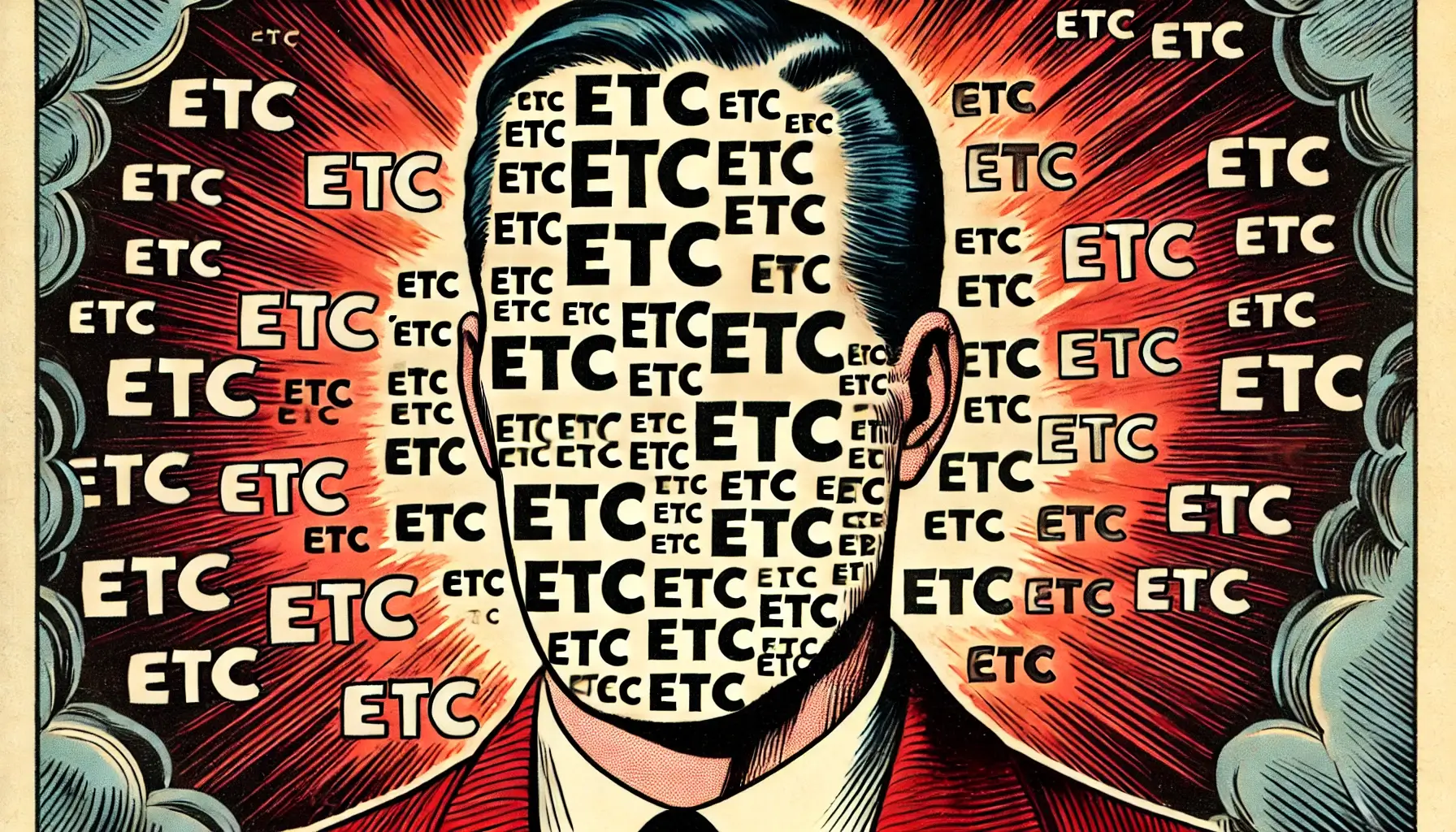The Pathology of Cenk Uygur, “Etcetera”

A Linguistic Shortcut That Exposes Intellectual Weakness
The pathology of Cenk Uygur has negatively impacted the liberal agenda in America for nearly 20 years. His stranglehold on this corner of politics has been predicated on a presumption of his intellectual superiority. In reality, it is domain authority online which keeps The Young Turks propped up at this point. That may be coming to an end, fortunately.
In the world of independent media, certain figures have become household names, shaping how political discourse is conducted outside the mainstream. Cenk Uygur, often considered the godfather of independent liberal media, has undoubtedly left an indelible mark on the space. His influence extends to countless personalities, including Krystal Ball and Saagar Enjeti of Breaking Points and David Pakman, who have either worked with The Young Turks or are stylistically adjacent to its brand of political commentary.
However, one particular habit—pun intended—seems to unite many of these voices: the pathological overuse of the word “etcetera.” While seemingly harmless, this linguistic tick reveals a deeper issue within the movement: an intellectual laziness masquerading as conversational ease.
The Problem With “Etcetera” As An Intellectual Shortcut
At its core, “etcetera” is a linguistic shortcut—a way to imply there’s more to say without actually saying it. In English, it’s grammatically acceptable when concluding a list of at least two or three items. For example:
- “The budget includes healthcare, infrastructure, education, etcetera.”
In this context, “etcetera” works because it signals there are additional items that fit neatly within the established pattern. But what happens when it’s used carelessly? Consider:
- “The budget includes healthcare, etcetera.”
This usage isn’t just imprecise; it’s lazy. It suggests the speaker either doesn’t know what else belongs in the list or doesn’t care enough to articulate it. Yet, it’s precisely this lazy version of “etcetera” that populates the speech of many independent media figures.
A Habit Passed Down From the Godfather
Cenk Uygur, as the founder of The Young Turks and a pioneer in liberal digital media, has long been a vocal and influential figure. But anyone who has listened to him for an extended period will notice his reliance on “etcetera.” He uses it frequently and often prematurely, as if to avoid elaborating on his points. This habit seems to have trickled down to others in his orbit.
Krystal Ball and Saagar Enjeti of Breaking Points, though no longer formally affiliated with The Young Turks, also exhibit this behavior. Their discussions often feature “etcetera” as a way to wrap up thoughts without fully developing them. Similarly, David Pakman, another prominent progressive voice often associated with TYT-adjacent media, appears guilty of similar intellectual shortcuts. In the case of Pakman, he often criticizes “elites” while using lofty rhetoric, even if not repeating similar words, etc.
It’s easy to see why. “Etcetera” offers an air of intellectual authority while conveniently bypassing the hard work of specificity. It allows the speaker to imply a breadth of knowledge without having to provide concrete evidence or examples. In this way, “etcetera” becomes an elitist version of filler words like “um” or “like”—a crutch that cloaks uncertainty in a veneer of sophistication.
This Is A Symptom of Lazy Intellectualism
The overuse of “etcetera” highlights several intellectual shortcomings:
- Failure to Define Boundaries:
When someone uses “etcetera” without elaborating, it signals that they don’t know where the group or concept they’re discussing begins or ends. For instance, saying “corporate corruption, etcetera” implies there are other examples but leaves the audience guessing what they might be. This lack of clarity weakens the argument and undermines trust. - The Illusion of Comprehensiveness:
“Etcetera” often masquerades as a stand-in for depth. Instead of listing multiple concrete examples, it glosses over the gaps, leaving the impression of thoroughness without delivering it. This rhetorical trick is not just lazy; it’s deceptive. - Inherited Habits:
Cenk Uygur’s influence on the independent media space cannot be overstated. As the de facto leader of this movement, his linguistic habits—including his overuse of “etcetera”—have been absorbed by those who look up to him. Krystal Ball, Saagar Enjeti, David Pakman, and others may be unintentionally mimicking this trait, perpetuating a cycle of shallow argumentation.
A Comparison To Libertarians and Their Use of “Particularly”
This linguistic laziness is not unique to progressive media. Libertarians, for example, have their own overused crutch: the word “particularly.” It’s often employed to sound precise while sidestepping the work of being truly particular. For example:
- “This applies to taxation, particularly corporate taxation.”
While seemingly specific, this phrasing often avoids delving into the nuances of corporate tax policy. The speaker signals expertise without providing it, much like the overuse of “etcetera.”
Both habits reveal a tendency toward intellectual shortcuts. They prioritize the appearance of intelligence over the substance of clear, well-articulated arguments.
Why This Matters For Consumers of Political Content
Language shapes perception. When media figures overuse “etcetera” or similar verbal tics, they dilute the strength of their arguments and risk alienating their audiences. Worse, they contribute to a culture of lazy intellectualism, where surface-level engagement with ideas replaces meaningful exploration.
In the independent media space—where the goal is often to challenge mainstream narratives and provide more thoughtful perspectives—this laziness is particularly damaging. It undermines the credibility of the movement and reinforces the stereotype that independent media lacks the rigor of traditional journalism.
A Call for Precision Is Needed In Our Independent Media
Independent media figures have a responsibility to communicate with clarity and integrity. That means breaking free from linguistic crutches like “etcetera.” Instead of implying breadth, they should strive to demonstrate it. Instead of glossing over complexities, they should embrace them.
Cenk Uygur, as the godfather of this movement, has an opportunity to lead by example. By making a conscious effort to be more precise, he could inspire others in his orbit—Krystal Ball, Saagar Enjeti, David Pakman, and beyond—to do similar things. The result would be a media space that is not only more articulate but also more intellectually honest.
Because at the end of the day, “etcetera” is no substitute for substance. And the audience deserves better.
